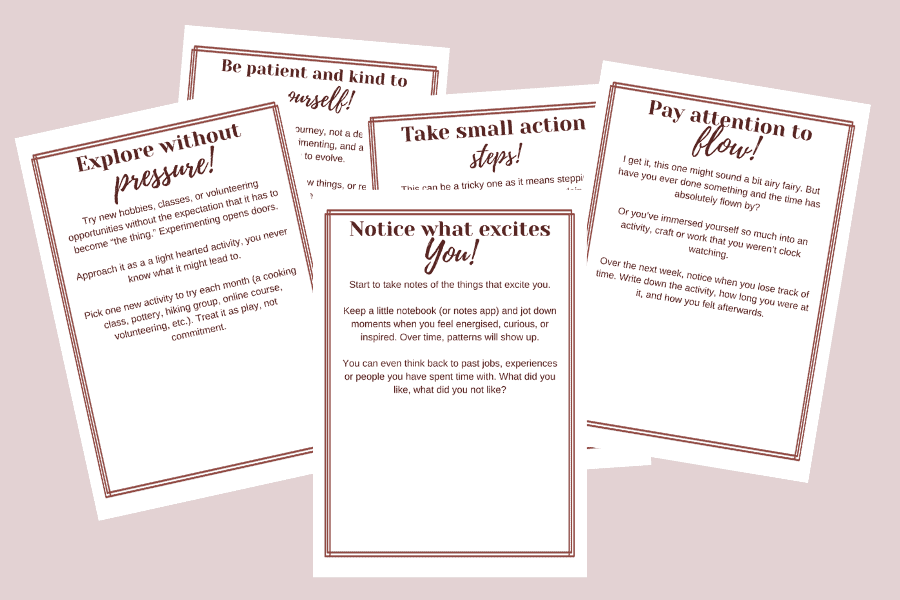How Your Money Mindset Is Impacting You

Your money mindset matters.
Why? Because how you view money will determine how much you bring into your life. If you hold fear about money, this could be a block that is preventing you from creating the abundance you deserve.
I’m going to take you through some key steps on how you can improve your money mindset. I will help you identify where you might have some blocks and how you can overcome these.
This post is about money mindset.

What is a money mindset?
Before we get into the nitty gritty of things, I want to tell you what a money mindset is and why it’s important to identify yours.
Your money mindset is a collection of beliefs, ideas and emotions you have about money. It could be that you see money as a source of stress because you can’t make ends meet, or that rich people are greedy or even that money is the root of all evil.
Whatever you belief is about money is a direct correlation to how you view your money today.
The reason this is important is because it shapes how you earn, save and spend money. It also influences how you feel about money – it could be that money stresses you out or makes you feel anxious.
Why your money mindset matters
The reason why your mindset matters is because its personal, its emotional.
It impacts you’re everyday life on how you view money and how you behave with money.
A few money mindset examples are, that you may view money as scarce. This could make you feel guilty every time you spend money, or spend out of fear.
Compared to someone who believes that money supports them. They will spend with joy and without guilt.
rich mindset vs poor mindset
If you find yourself saying things such as, ‘there’s never enough money‘, or ‘I can’t afford to live today, let alone save for the future‘. You’re coming from a place of lack and scarcity.
This belief and emotion about money could have evolved from bad debt, or even the attitudes and beliefs from your parents.
However, this poor mindset will keep you stuck where you are. You will be in a constant lack mindset with a fear of money.
If you want to move from this, then you need to adopt a rich mindset.
Once you start adopting phases such as ‘I trust myself with money‘, or you start to make financial plans for the future. You’re opening up for mind to opportunities to changes bad habits.
Simple money mindset exercises
If you’re ready to shift your money mindset then here are 5 simple steps:
1. Money belief awareness
Your first step is to find out what and where your money beliefs stem from.
Write down everything you know about money. It can even be phrase’s you know such as ‘money doesn’t grow on trees’ or “rich people are selfish and greedy‘.
Once you have this, ask yourself if these statements or understanding of money is true. Try to also understand where you got this belief from, was it your parents, friends or even a bad debt you had?
Once you have this list, ask yourself if these beliefs and understanding of money are helping you?
2. Reframing limiting beliefs
Once you’re aware of your limiting beliefs you can start to reverse them. This isn’t about pretending everything is perfect, it’s about taking the time to soften those beliefs.
For instance, if you constantly think “I’m bad with money‘, you can change this to “I’m learning to manage money better“.
Reframing your thoughts about money will take time, but if you’re consistent you’ll start to see the changes.
3. Money journaling prompts
As well as the reframing of beliefs, journaling is a great way to transform your money mindset.
You can use some of the following prompts to get a real understanding of how you think about money:
“What does money mean to me?”
(Safety? Freedom? Stress? Power?)“How do I want to feel about money?”
(Calm, confident, supported, in control)“What would change if I felt safe with money?”
(How would you make decisions differently?)
There are no right or wrong answers to this. Its about gaining clarity on your thoughts, so don’t judge yourself either.

4. Gratitude for money
Gratitude is about acknowledging what money is currently doing for you.
Notice what your money is currently paying, the necessities you are able to buy.
You can express your gratitude by saying things such as ‘I’m grateful I can pay this bill‘, ‘I’m grateful for the money that supports my daily life’.
With anything, consistency is key. If you start to show gratitude often, it will become second nature.
5. Visualisation
With visualisation you get to daydream!
But, this isn’t any type of daydreaming, this is day dreaming with purpose.
You only need to dedicate a few minutes a day with this. Find yourself a quiet, comfortable spot, where you can relax and calm your breathing.
Close your eyes and focus on your financial future. See yourself paying your bills with ease and your bank account increasing.
The idea of this is that you attach and feel emotions with each vision. Your nervous system will start to relax with thoughts of money and you’ll move out of a fight or flight feeling.
Once you start to work on your money mindset, wonderful things will happen.
You’ll find yourself not stressing so much about money, you’ll view as abundant and at your disposal.
Unlock the power of your mind and what it can do for you and your finances.
This blog post was about money mindset
Share this post: on Twitter on Facebook






